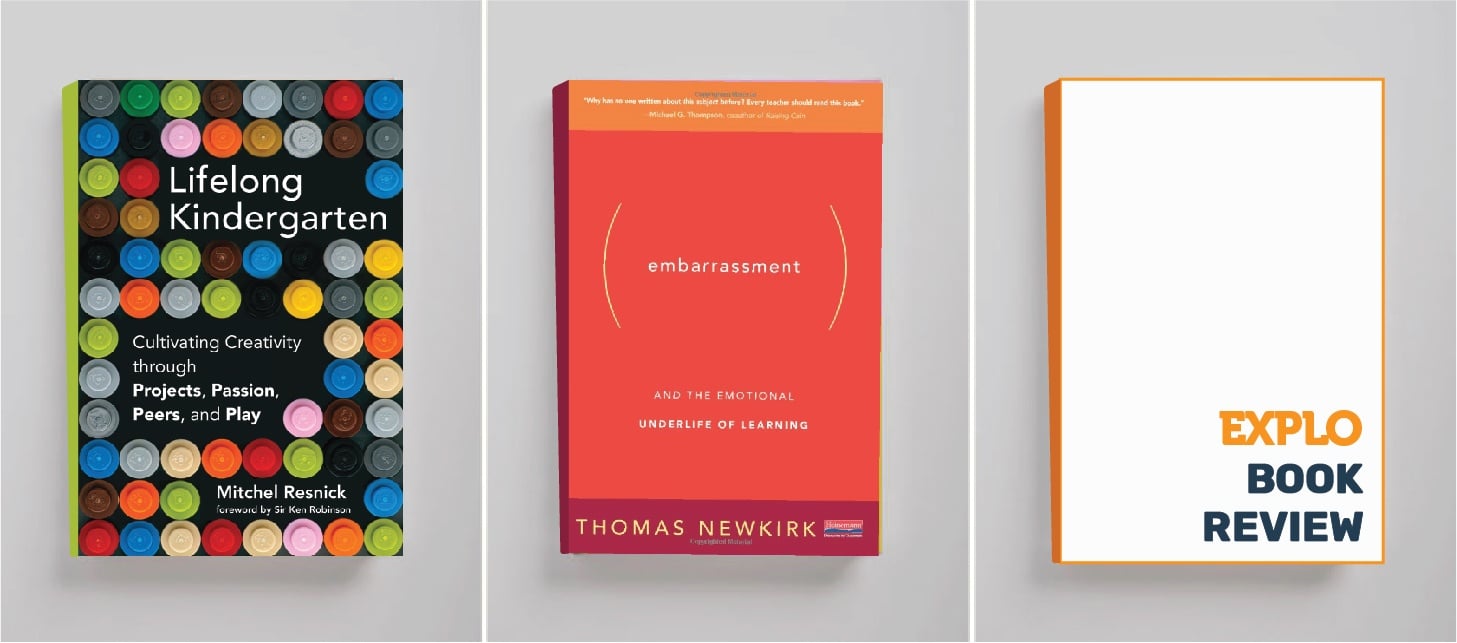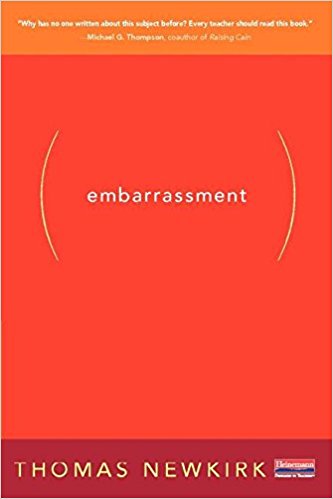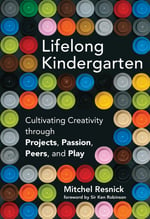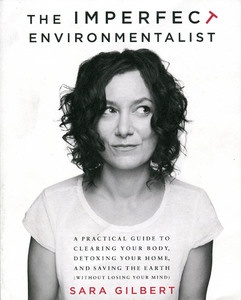EXPLO Book Review: Resiliency In the Face Of Embarrassment and Creative Learning Environments

At the heart of EXPLO, our mission is to teach students the skill sets needed to find joy in life-long learning. We do this by encouraging our students to exercise their courage to self-motivate, their daring to take action, and their confidence to examine beyond the boundaries of their own comfort zone. We hope through this encouragement, our students (of all ages) develop the desire to participate in a life worth learning about.
To make sure EXPLO can properly teach educators and students how to be lifelong learners, we commit to constantly pursuing our own active teaching and learning.
This means that at The Exploration Center, we read — and a lot. We believe that books help shape our views, further develop our education philosophy, and give us some new ideas to explore.
In today’s edition of our EXPLO Book Review, we look at two books that have taught us 1) how to become more resilient in the face of embarrassment, and 2) about creative learning environments in the 21st century:
 Embarrassment: And the Emotional Underlife of Learning
Embarrassment: And the Emotional Underlife of Learning
by Thomas Newkirk
Heinemann
University of New Hampshire Professor Emeritus Thomas Newkirk has deftly probed the human condition and presented us with something that in our hearts we all know: fear of embarrassment undermines our learning, our teaching, and how we live.
“I contend that if we can take on a topic like embarrassment and shame, we can come to a richer, more honest, more enabling sense of who we are and what we can do,” Newkirk explains. “So let’s do battle. Let’s name and identify the enemy that can haunt our days, disturb our sleep, put barriers up to learning, and drain joy from our lives — and maybe we can also learn how to arrange some things in our own head so that we can be more generous toward ourselves.”
“I contend that if we can take on a topic like embarrassment and shame, we can come to a richer, more honest, more enabling sense of who we are and what we can do.”
Newkirk offers practices and strategies that can help students and teachers become more resilient in the face of embarrassment. A longtime teacher of writing, Newkirk delivers his insights wrapped in stories and examples that are touching, but also poignant enough that we will remember the lessons long after putting down the book. If we as educators take his advice, we may well help our students — and ourselves — lead bigger and more fulfilling lives.
 Lifelong Kindergarten: Cultivating Creativity through Projects, Passion, Peers, and Play (MIT Press)
Lifelong Kindergarten: Cultivating Creativity through Projects, Passion, Peers, and Play (MIT Press)
by Mitchel Resnick, Foreward by Ken Robinson
MIT Press
I was fortunate enough a couple of months ago to spend the better part of a week at the MIT Media Lab and while there was able to learn from the delightful Mitch Resnick about what learning in the 21st century should look like. You may know Resnick as one of the folks who developed the Scratch programming software and online community and one of the collaborators on the LEGO Mindstorms robotics kits.
Resnick is calling upon us to make school more like kindergarten — the old kindergarten, before worksheets and flashcards. The kindergarten of exploring, imagining, playing, and making. It’s this kind of environment that will maximize students chances of thriving as we enter an uncertain and volatile future.
Resnick is calling upon us to make school more like kindergarten — the old kindergarten, before worksheets and flashcards. The kindergarten of exploring, imagining, playing, and making.
Resnick channels his mentor, Seymour Papert, in advising teachers to develop projects with low floors, high ceilings and wide walls. Getting started should be easy but students should be able to engage in increasingly complex projects over time. Different students have different interests and there should be many pathways from the low floors to the high ceilings.
Much of Resnick’s work has engaged students in out of school learning time where the constraints of the typical school — standards, schedules, testing — do not live. The result has been students deeply engaged in their own learning. The challenge will be building these creative learning environments within the school day, but it’s essential we do so if we want our kids to thrive in an uncertain and volatile future.
At your convenience, we refer you to a trusted Amazon link to for immediate purchase of these books. As a result, your contribution directly supports EXPLO, who receives a small portion of the cost.


